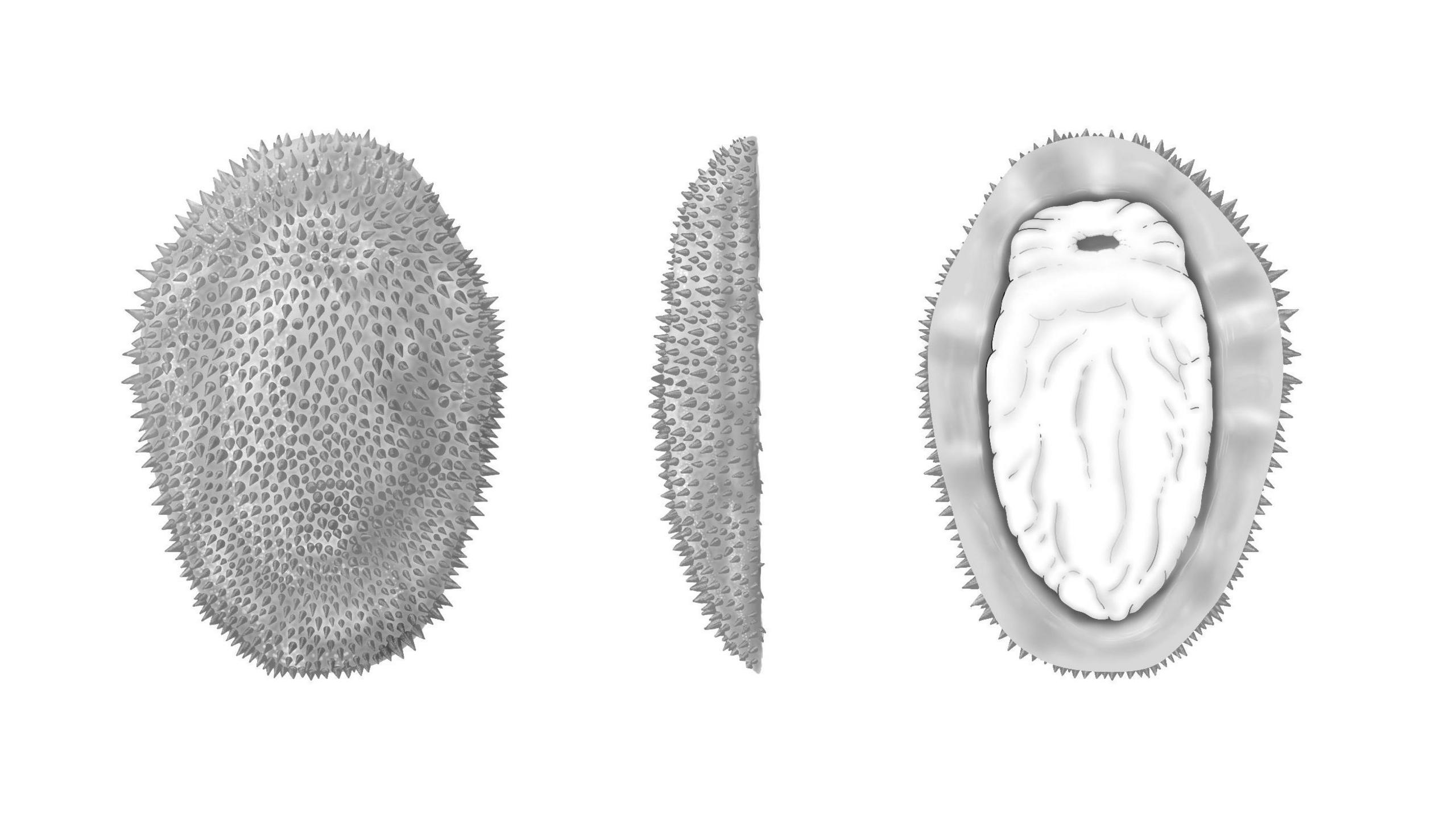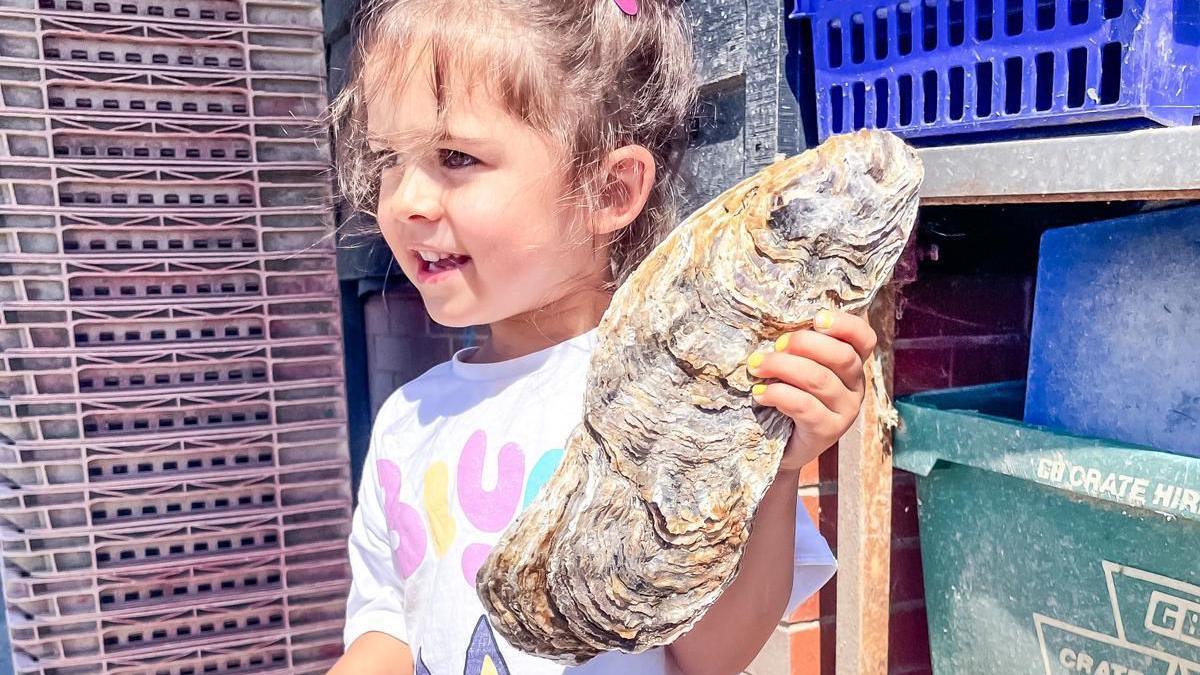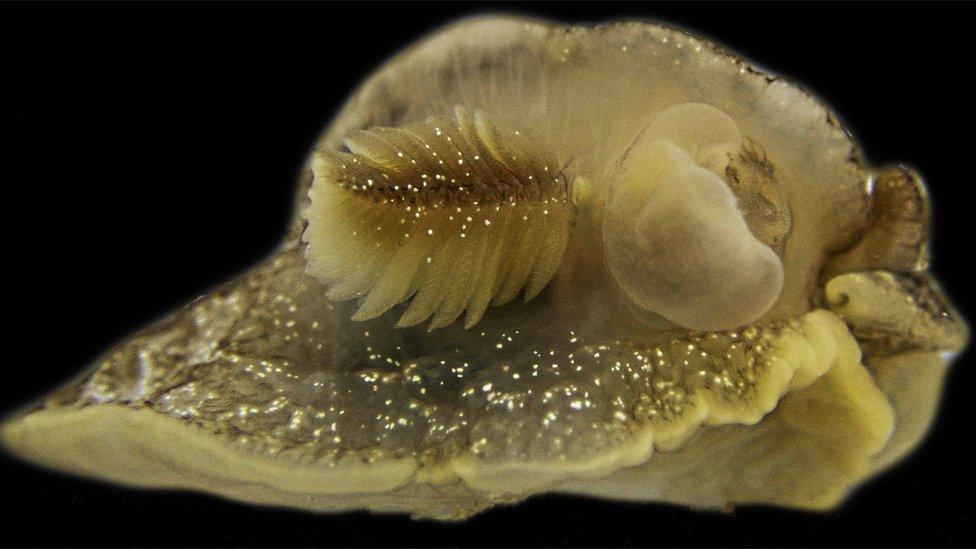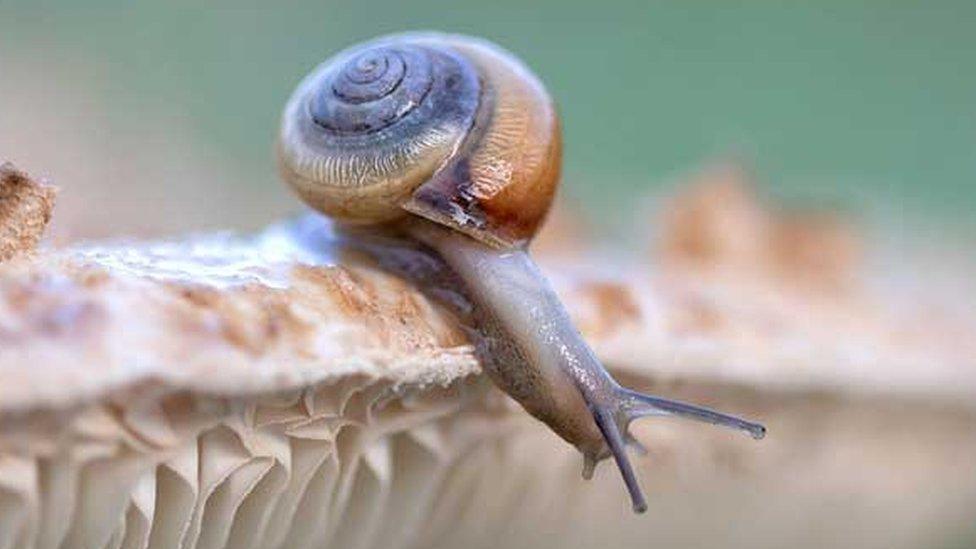Half-a-billion-year-old slug reveals mollusc origins

The fossil was initially referred to as "the plastic bag" because of its appearance
- Published
A half-a-billion-year-old spiny slug has shed light on the origins of animals like oysters and octopuses, researchers have said.
Scientists, including experts from the University of Oxford, have discovered a new species of mollusc that lived 500 million years ago.
The fossil, called Shishania aculeata, reveals that the earliest molluscs were flat, shell-less slugs covered in a protective spiny armour.
Shishania was initially referred to as "the plastic bag" because of its appearance.
First author Guangxu Zhang, a recent PhD graduate from China's Yunnan University who discovered the specimens, said the fossils were "completely different" from any others he had seen.
Molluscs are animals that do not have a backbone and today come in many different forms, from snails to squids.
This diversity evolved very quickly a long time ago, and very few fossils have been left behind that chronicle their early evolution.
The new species was found in well-preserved fossils from eastern Yunnan Province in southern China, dating from a geological period approximately 514 million years ago.
The specimens are all only a few centimetres long and are covered in small spikey cones.
Some of the fossils were preserved upside down and show that the bottom of the animal was naked, with a muscular foot like that of a slug.
Experts suggest it would have used this food to creep across the seafloor.
Corresponding author associate prof Luke Parry, of the department of earth sciences at Oxford, said it showed "the very earliest mollusc ancestors were armoured spiny slugs".
Its spines show an internal system of canals that are less than a hundredth of a millimetre in diameter.
These features show that the cones were secreted at their base by tiny protrusions of cells, which researchers compared to the workings of a natural 3D printer.
Follow BBC South on Facebook, external, X, external, or Instagram, external. Send your story ideas to south.newsonline@bbc.co.uk or via WhatsApp on 0808 100 2240.
Related topics
- Published21 July 2024

- Published1 March 2024

- Published14 March 2024
